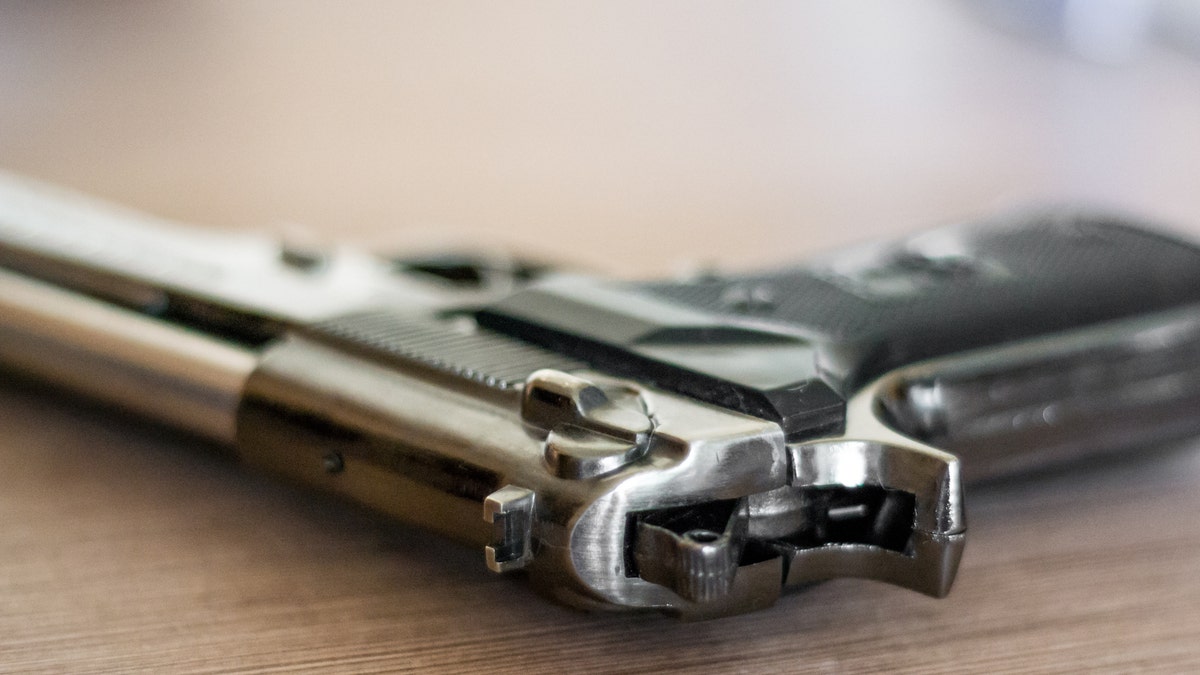
handgun on the wooden surface, closeup, useful for various security,protection or criminal topics (iStock)
States that require background checks before people buyguns or ammunition may have a lower chance of having a school shooting, a new study finds.
Researchers found that over a three-year period, states that didn't require background checks before purchases of guns or ammunition were more likely to have a school shooting than those states that did require them, according to the study.
Moreover, the researchers found that school shootings occurred less frequently in states that spent more money on mental health services, compared with states that spent less. This suggests that mental health service providers may help states screen people who could harm themselves or others with firearms, the researchers said.
In the study, the researchers, led by Bindu Kalesan, an assistant professor of medicine at Boston University, looked at media reports of school shootings in the U.S. that happened between 2013 and 2015. The researchers used media reports because there is no official, comprehensive national data source on school shootings.
The researchers also looked at certain factors that could be linked to how frequently these shootings occurred. Besides background checks and mental health services, the researchers also looked at how many people in a state owned guns and how much money states spent overall on education in schools, from kindergarten through grade 12.
The researchers found that there were 154 school shootings between 2013 and 2015, and that 39 states had at least one school shooting during this three-year period. Of those states, 34 had fewer than 10 school shootings during this time period.
Florida, Georgia, North Carolina, Tennessee and Texas each had 10 to 15 school shootings during the three-year period, according to the study, which was published today (Dec. 6) in the journal Injury Prevention.
However, 11 states had no school shootings during the same three-year period. These states included Alaska, Connecticut, Hawaii, New Hampshire, New Jersey, New York, North Dakota, Rhode Island, Vermont, West Virginia and Wyoming. (The shooting at Sandy Hook Elementary School, in Connecticut, happened in December 2012, prior to the study period.)
When the researchers looked at their data, they also found that school shootings were less likely to occur in states that spent more money on K-12 education than in those that spent less money on education for students in those grades. This finding is in line with previous research that has suggested that there is a link between increased spending on education and lower levels of crime and violence, the researchers said.
More From LiveScience
This study was observational, so the researchers noted that they cannot firmly conclude that there is a cause-and-effect relationship between background checks or other factors and school shootings.
But the rising incidence of school shootings shows that there is a need for a national registry to monitor such events, so that the causes of these traumatic events can be better understood, they said.
Originally published on Live Science.







































